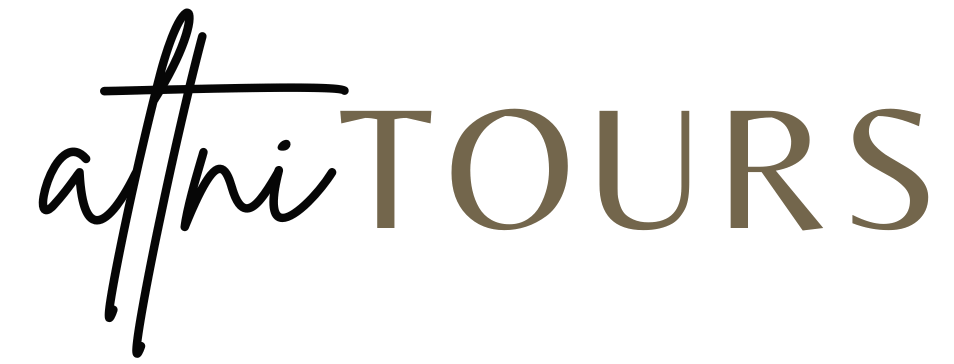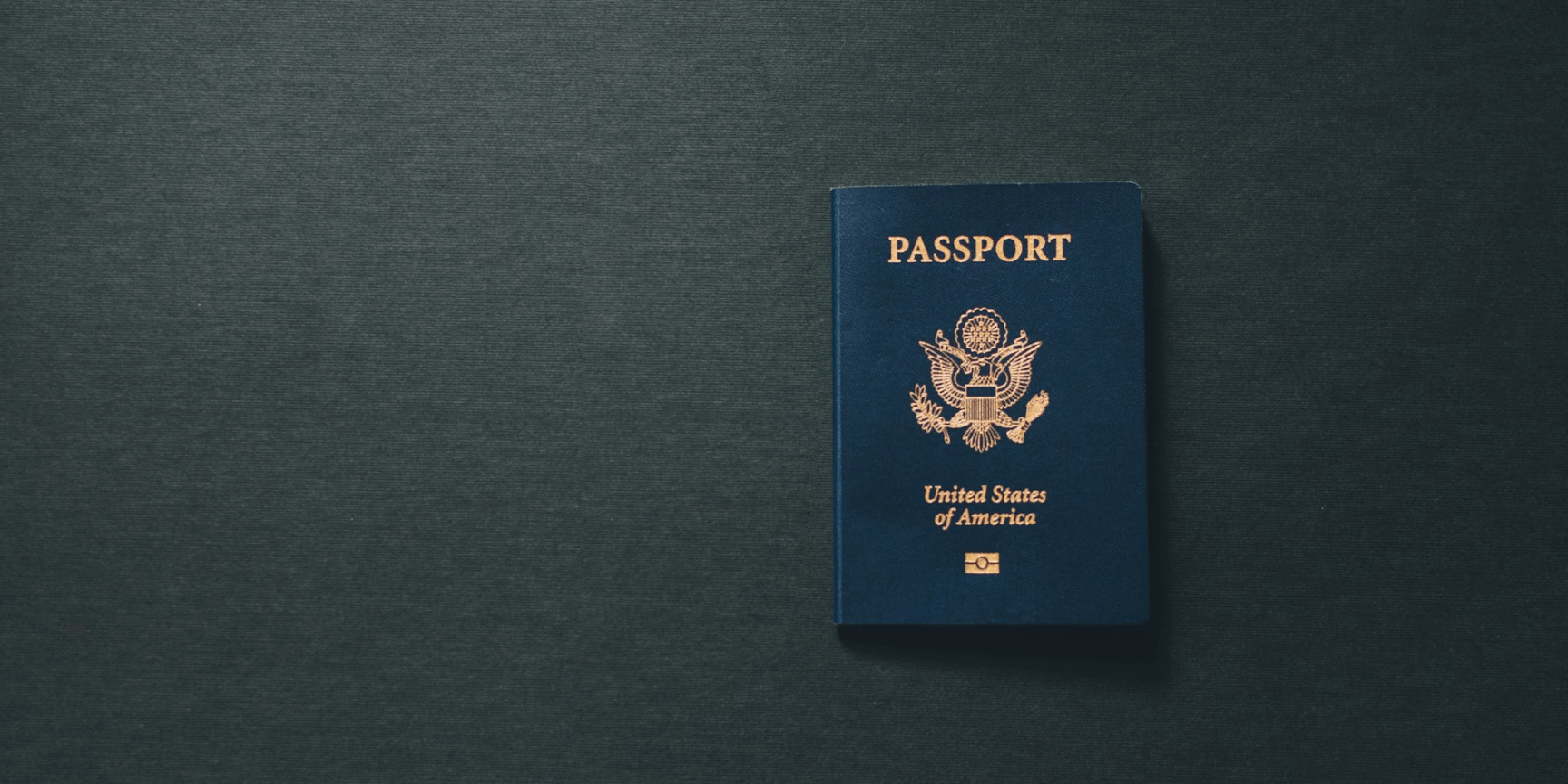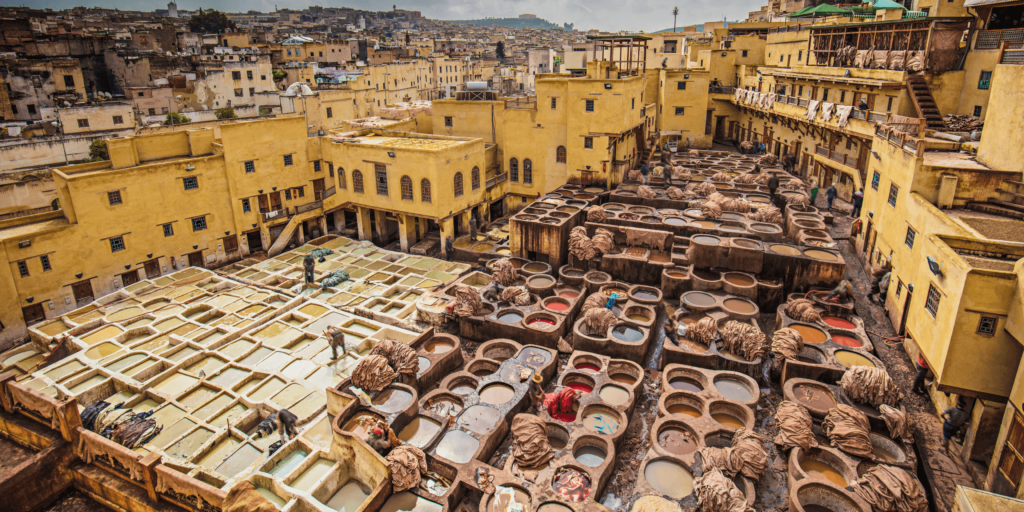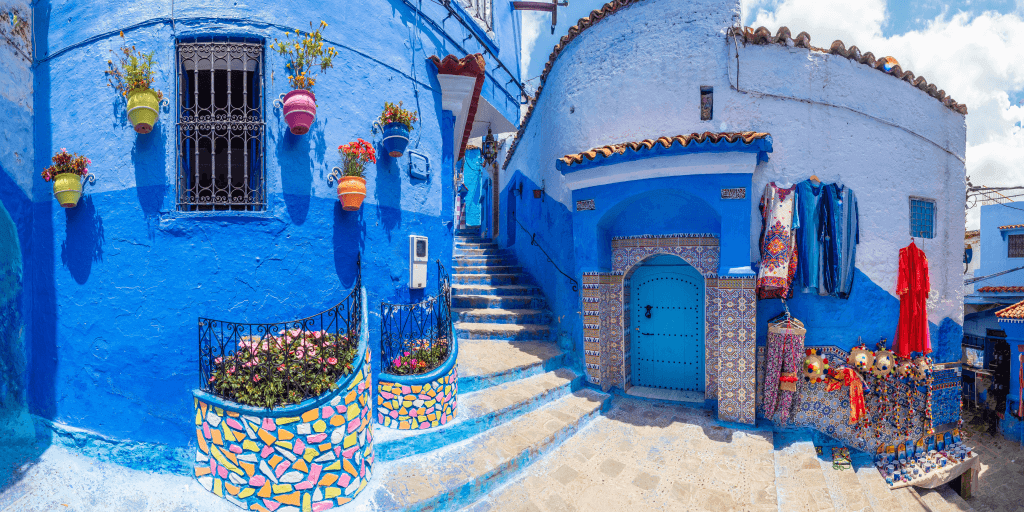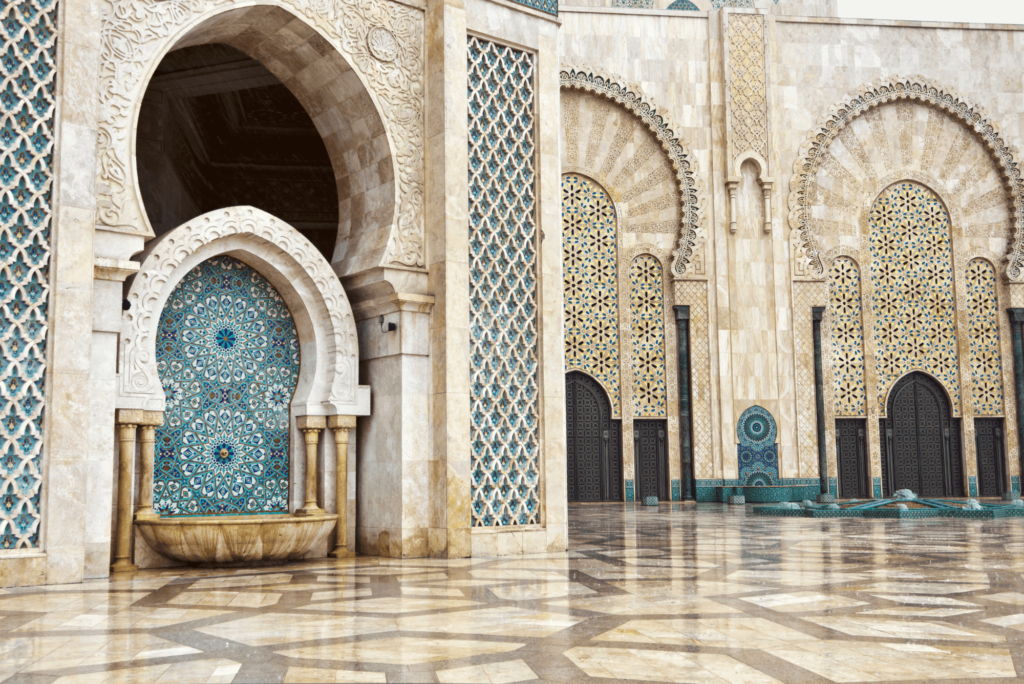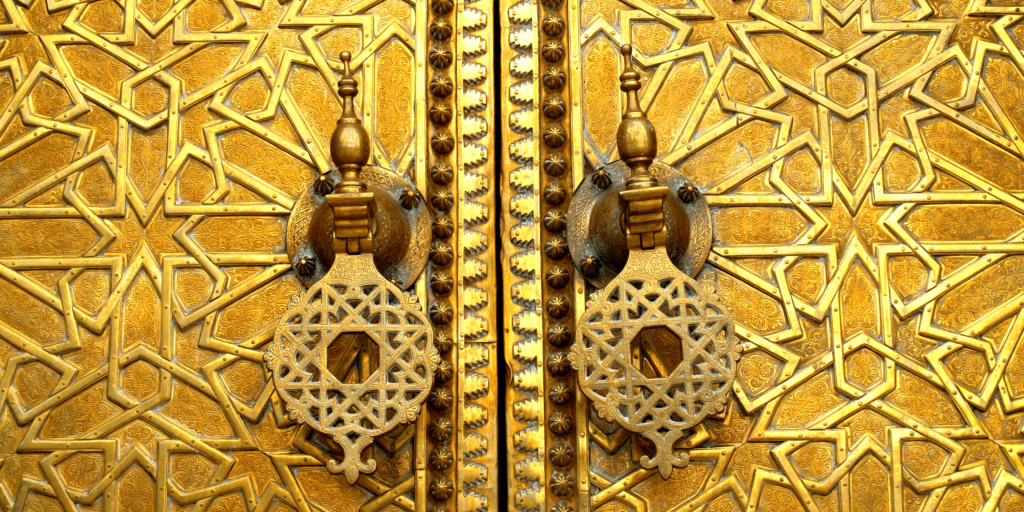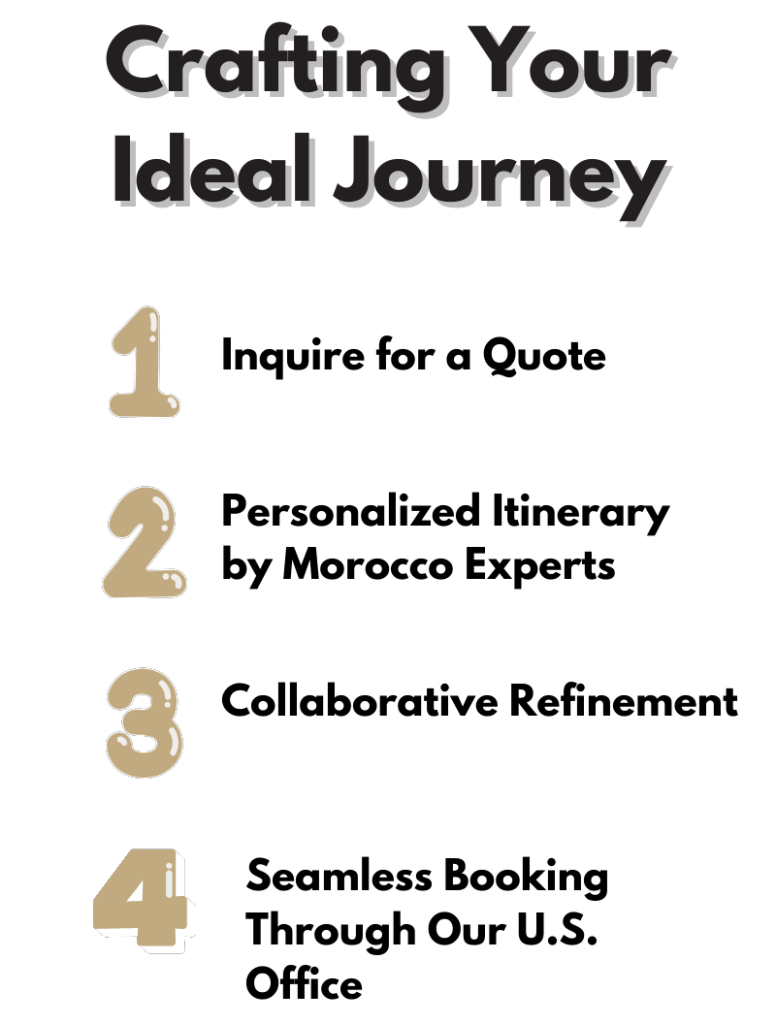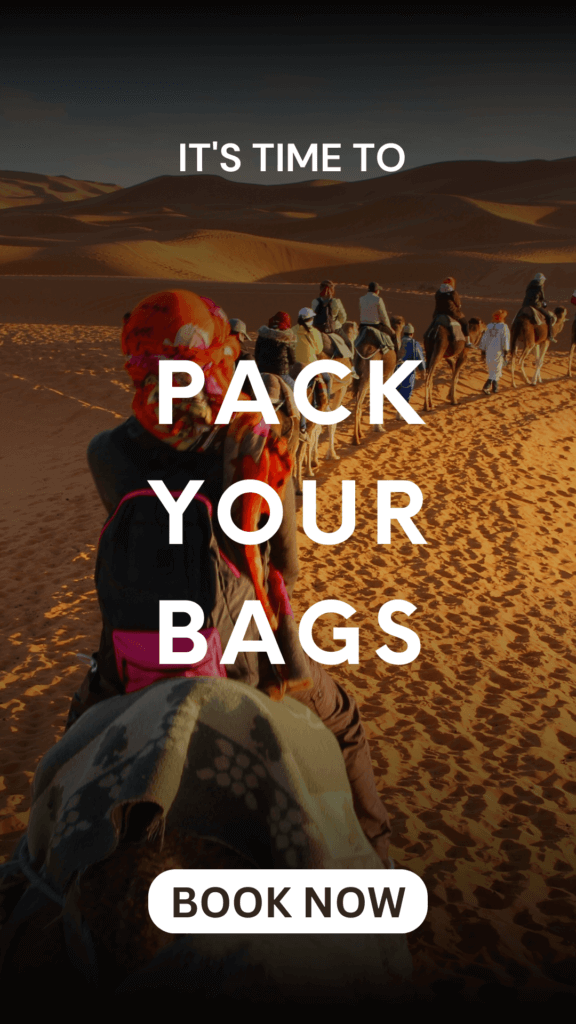Essential Tips for Safe Travel to Morocco.
Are you thinking about visiting Morocco?
Are you worried about safety during your trip?
Essential Tips for a Safe and Enjoyable Morocco Experience.
Traveling to Morocco is an exciting adventure with its vibrant culture, stunning landscapes, and rich history. To have a safe and enjoyable journey, being well-prepared is key. Understanding local customs, staying aware of your surroundings, and knowing essential safety tips can ensure your trip is memorable for all the right reasons.
We care about the safety of all travelers to Morocco, especially those traveling with our company. Here are some thoughts on staying safe while visiting Morocco.
Table of Contents
Navigating Moroccan Cities Safely.
Morocco’s bustling cities like Marrakech, Casablanca, and Fes are renowned for their unique charm and vibrant energy. To fully enjoy your time in these cities while staying safe, here are some essential tips:
Government Efforts and Overall Safety.
Even during the Arab Spring, Morocco remained one of the safest countries in North Africa and the Middle East. The Moroccan government prioritizes the security of both its citizens and visitors, with a strong presence of law enforcement in major tourist areas. Visitors can often see police patrolling the streets and stationed at key points to ensure safety.
Personal Safety Tips.
To stay safe while exploring Moroccan cities, it’s crucial to stay aware of your surroundings. Avoid carrying large sums of money or flashy jewelry, as these can attract unwanted attention. Be cautious of your belongings, especially in crowded markets and popular tourist spots, to avoid pickpocketing. Use registered taxis or rideshare services rather than unmarked cars to ensure safe transportation.

Cultural Awareness.
Respecting local customs and traditions is essential. Dress modestly, particularly in more conservative areas, to avoid drawing unnecessary attention. Learning a few basic phrases in Arabic or French can also help in navigating interactions and showing respect to locals.
By staying vigilant and following these tips, you can navigate Moroccan cities safely and enjoy all that this beautiful country has to offer.
As you travel to Morocco, there are a few things that you will want to keep in mind while on the ground. We are not concerned about your personal physical safety, however, you will want to be aware of your belongings. This is the same as when you travel to any major city.
1: Watch your wallet.
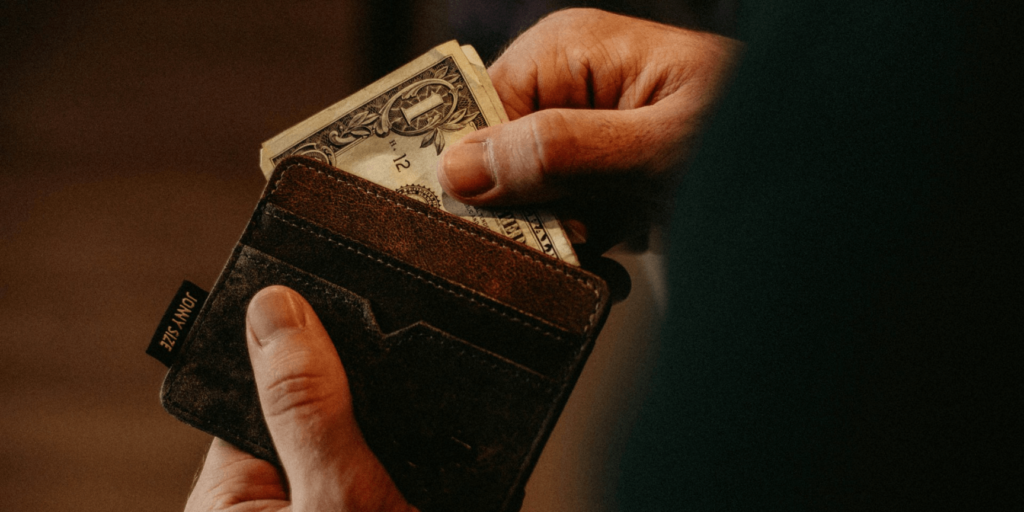
Like every country in the world, there are people who make their living taking advantage of unsuspecting travelers. As you walk in the busy markets and squares, make sure that you are aware of your wallet or phone. We have known a few people over the years to have their wallets or phones stolen without them even knowing it. Be extra mindful when you are around lots of people or on public transportation.
To prevent theft, consider using a money belt or a secure, zippered bag that can be worn across your body. Keep your valuables in a front pocket rather than a back pocket, and avoid showing large amounts of cash in public. Additionally, staying aware of your surroundings and maintaining a firm grip on your belongings can deter potential pickpockets.
By taking these precautions, you can minimize the risk of losing your valuables and enjoy your time exploring Morocco’s vibrant markets and bustling squares with greater peace of mind.
2: Watch your time and surroundings.
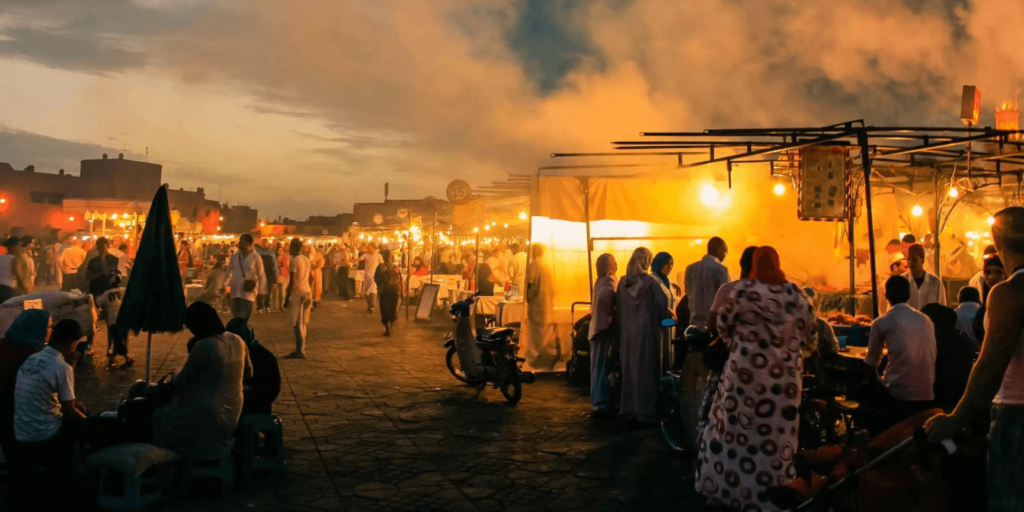
There are some places in Morocco where you will want to be in your hotel by late evening. While Morocco is generally safe and not known for violent crime, it’s wise to use good sense to avoid any potential harm. We recommend that you keep an eye on your surroundings to gauge when it’s time to head back to your accommodation. During the summer months, the streets are lively and bustling with people, but in the winter, they tend to clear out early. Observe what others are doing and follow their example.
During Ramadan, the streets are especially empty in the evening as everyone is home with their families breaking the fast. Later at night, more people may come out as they stay awake longer, but use extra caution to avoid being outside alone during this time.
By staying aware of the time and your surroundings, you can enjoy Morocco safely and make the most of your visit. Always remember to stay in well-lit areas, travel with companions if possible, and trust your instincts to ensure a safe and enjoyable experience.
3: Protect your passport.
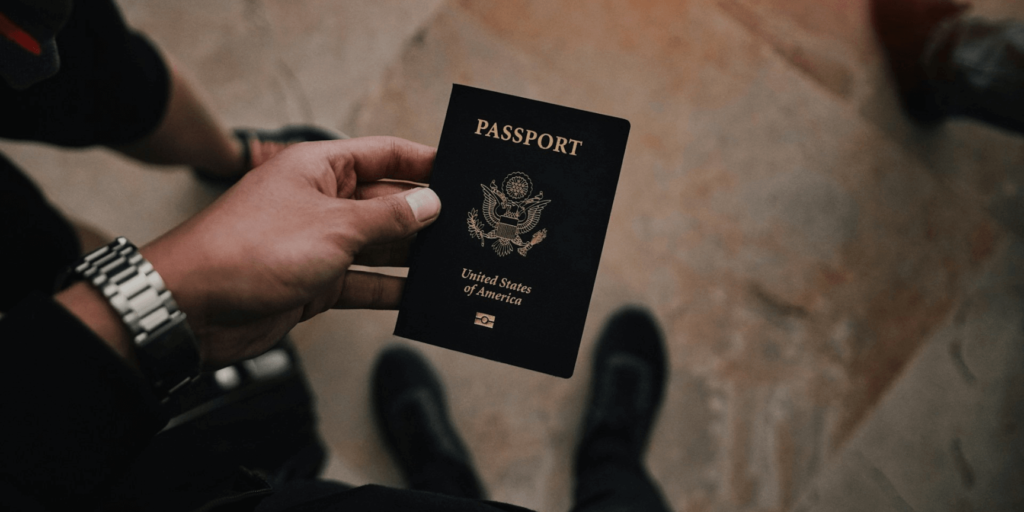
Losing your passport in a foreign country is very stressful. Make sure that you take some precautions to keep your passport safe. We highly recommend making a color photocopy of your main passport page in case something does happen. Another simple solution is to keep a scanned copy of your passport in the cloud – just in case!
There are usually safes in the riads where you can keep your passports to ensure that they are guarded at all times. When you need to carry your passport with you, use a secure travel wallet or money belt to keep it close to your body and out of sight. Avoid taking it out in public unless absolutely necessary.
4: Women alone or not alone?.
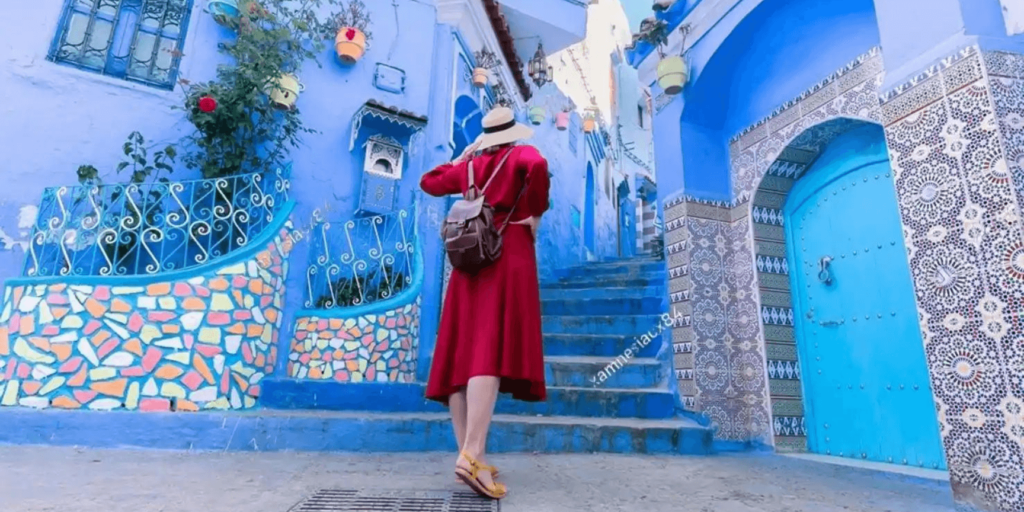
If you are on a private tour of Morocco with your driver, you will not have any troubles as a woman. Many solo female travelers have enjoyed their time in Morocco without any significant safety concerns. However, this doesn’t mean that there are no issues to be aware of.
One important thing to remember is that women wandering alone may attract looks and comments from men sitting in cafes. This is a common experience and not usually threatening, but it can be uncomfortable. To mitigate this, dressing culturally appropriately is highly recommended. Wearing modest clothing that covers your shoulders, chest, and knees can help you blend in and show respect for local customs.
If you are traveling alone, it’s also a good idea to remain aware of your surroundings and avoid secluded areas, especially at night. Stick to well-populated and well-lit places, and consider sharing your travel itinerary with someone back home for added security.
Additionally, using reputable transportation options, such as registered taxis or rideshare services, can help you stay safe. When dining out or exploring, choose restaurants and cafes that are busy and frequented by families, as these are usually safe and welcoming environments.
while traveling alone as a woman in Morocco is generally safe, being mindful of local customs and dressing modestly can help you avoid unwanted attention. Using common-sense safety practices and staying aware of your surroundings will ensure that your experience in Morocco is both enjoyable and trouble-free.
5: Watch out for the con!.
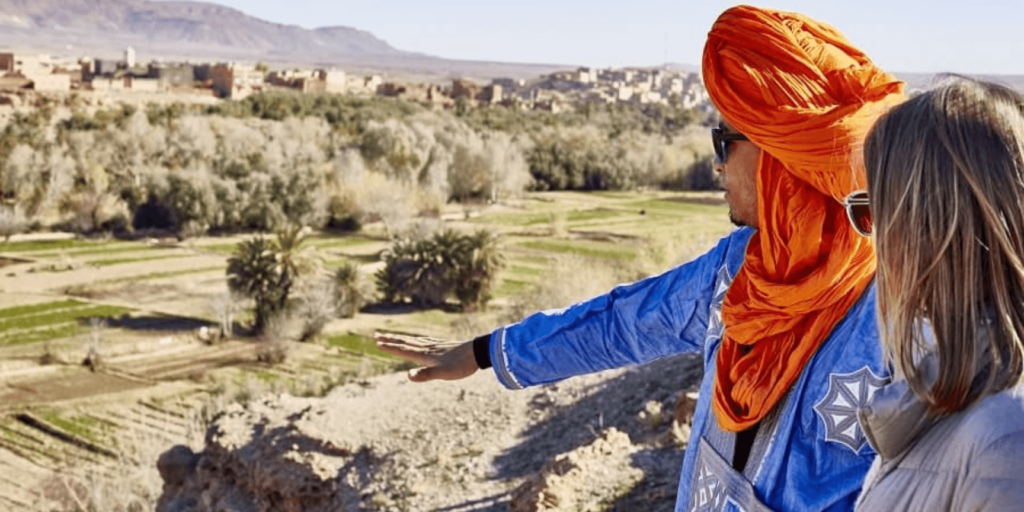
If you’re traveling to Morocco, one final piece of advice is to stay alert for potential con artists. While Morocco is widely known for its hospitality, with 95% of the population being genuinely welcoming and kind, there is a small percentage of individuals who may try to take advantage of unsuspecting tourists.
A common issue that independent travelers face is dealing with false guides. As you stroll through the medina in any major city, you will undoubtedly hear offers from people claiming they can show you the best sights, lead you to the finest restaurants, or help you find the most beautiful Berber carpets at unbeatable prices. This is quite common and can be overwhelming. The best strategy is to politely decline and continue on your way. Learning to say no firmly yet courteously will help you avoid these unwanted interactions.
Many of these false guides are simply looking to make a quick profit by leading you to shops where they receive commissions on your purchases. This can lead to overpaying for goods or services you might not even want. To avoid this, it’s crucial to remain cautious and stick to your plans without being swayed by unsolicited offers.
One way to significantly reduce the risk of encountering such scams is to join a private tour. With a private tour, you’ll be accompanied by a licensed guide who can show you around safely and reliably. These guides are knowledgeable, trustworthy, and can enhance your experience by providing valuable insights into Moroccan culture, history, and attractions.
What is the safest way to travel in Morocco?
To ensure a safe and enjoyable trip to Morocco, follow these tips while in public areas:
Dress modestly and respectfully: Especially in more conservative areas and when visiting religious sites, wearing clothing that respects local customs can help you avoid unwanted attention. Aim to cover your shoulders, chest, and knees.
Stay aware of your surroundings: Always be mindful of your environment, particularly in crowded places like markets and public transportation. Keep an eye on your belongings and be cautious of pickpockets.
Use reputable transportation: Opt for registered taxis, rideshare services, or private drivers instead of unmarked cars. If you’re unsure, ask your hotel or accommodation for recommendations on trustworthy transportation options.
Travel in groups: Whenever possible, explore with companions. There is safety in numbers, and traveling with others can deter potential scammers or opportunists.
Avoid secluded areas at night: Stick to well-lit and populated areas after dark. If you need to go out at night, it’s best to do so in a group or use reliable transportation.
Respect local customs and traditions: Familiarize yourself with Moroccan culture and practices. Showing respect for local traditions can enhance your experience and help you navigate social interactions smoothly.
Be cautious with strangers: While Moroccans are known for their hospitality, be wary of unsolicited offers from strangers. Politely decline and continue with your plans to avoid potential scams.
Secure your valuables: Use a money belt or a secure bag to carry important documents, money, and cards. Leave valuable items in the hotel safe whenever possible.
What is needed to travel to Morocco?
To ensure a smooth entry into Morocco, here are the essential requirements:
Passports and Visas:
Valid Passport: You must have a passport that is valid for at least six months from your date of entry into Morocco. Ensure it has at least one blank page for entry and exit stamps.
Visa Requirements: Visas are not required for visits lasting less than 90 days for citizens of many countries, including the United States, Canada, the European Union, and Australia. Check the specific visa requirements for your nationality before traveling.
Overstays:
Extension of Stay: If you plan to stay in Morocco for more than 90 days, you must request an extension from the Moroccan authorities before your initial 90-day period expires.
Legal Proceedings: If you overstay your visa without obtaining an extension, you will need to appear before a judge before being allowed to leave Morocco. This can result in fines or other legal complications, so it’s crucial to adhere to the 90-day limit.
What medication to take to Morocco?
When traveling to Morocco, it’s important to be prepared with essential medicines and first aid items to ensure a comfortable and safe trip. Here are some recommended items to pack:
Medicines:
Paracetamol: For pain relief and fever reduction.
Ibuprofen: For pain relief, inflammation reduction, and fever control.
Imodium: To manage diarrhea, which can be helpful if you experience any digestive issues while adjusting to local food and water.
First Aid Kit:
Sun cream: To protect your skin from the strong Moroccan sun.
Lip balm: To keep your lips hydrated and prevent chapping.
After-sun cream: To soothe your skin if you get sunburned.
Mosquito repellent: To protect yourself from mosquito bites, especially in the evening and near water.
Sunglasses: To protect your eyes from the bright sun and reduce glare.
A traveler’s first aid kit is always good to have on hand in case of any minor injuries or health issues. Include items such as adhesive bandages, antiseptic wipes, gauze pads, adhesive tape, tweezers, and any personal prescription medications you may need.
What not to pack for Morocco?
When preparing for your trip to Morocco, it’s important to pack appropriately to respect local customs and ensure your comfort. Here are some items to avoid:
Inappropriate Clothing:
Short Shorts: These are not considered appropriate attire in Morocco. Opt for longer shorts or skirts that cover your knees.
Crop Tops: Midriff-baring tops are not suitable. Choose tops that cover your shoulders and midsection.
Tank Tops: Sleeveless tops are best avoided. Instead, pack short-sleeve or long-sleeve shirts that offer more coverage.
Other Considerations:
Evening Wear: Evenings can be cooler than you might expect, especially in late spring, autumn, and winter. Avoid packing only lightweight, summer clothing. Bring a few warmer layers, such as a light jacket or sweater, to stay comfortable when temperatures drop.
What shoes to pack for Morocco?
Packing the right shoes for your trip to Morocco is essential for comfort and practicality. Here are the best types of shoes to bring:
Sneakers/Sports Shoes:
Comfortable and Reliable: A pair of comfortable and reliable sports shoes are perfect for any time of the year in Morocco. They are ideal for long walking tours or hikes, providing support and cushioning.
Protection and Warmth: Sports shoes will protect your feet from uneven terrain and keep them warm, especially in cooler evenings or during visits to higher altitudes.
Sandals:
Breathable and Easy: Pack a pair of comfortable sandals for warmer days. They are perfect for casual strolls, beach visits, and exploring markets. Choose sandals with good arch support for added comfort.
Dress Shoes:
For Dining Out: If you plan on dining at upscale restaurants or attending events, bring a pair of dress shoes. Opt for something comfortable yet stylish, as you may still do some walking.
Hiking Boots:
For Adventure: If you plan on doing extensive hiking, such as in the Atlas Mountains, sturdy hiking boots are a must. They provide extra ankle support and grip on rugged trails.
Should you carry your passport in Morocco?
We recommend taking care of your belongings at all times while in Morocco. It’s advisable to carry your passport with you in your day bag, as it may be required for identification purposes. Additionally, make a photocopy of your passport and store it securely in your bag. This ensures you have a backup in case your passport is lost or stolen.
Avoid carrying large amounts of cash and instead use credit cards or withdraw money from ATMs as needed. By being vigilant with your belongings and keeping essential documents safe, you can enjoy your travels in Morocco with peace of mind.
Can you drink alcohol in Morocco?
Morocco allows the consumption of alcohol, but it is regulated. Alcohol can be purchased and consumed in licensed hotels, bars, and tourist areas throughout the country. Additionally, most major supermarkets in Morocco sell alcohol for purchase. It’s important to note that outside of these designated areas, the availability and acceptance of alcohol may vary, especially in more conservative or rural regions.
Travelers should respect local customs and laws regarding alcohol consumption. While it is permissible in certain places, it is advisable to drink responsibly and consider cultural sensitivities, particularly during religious holidays or in more traditional communities.
